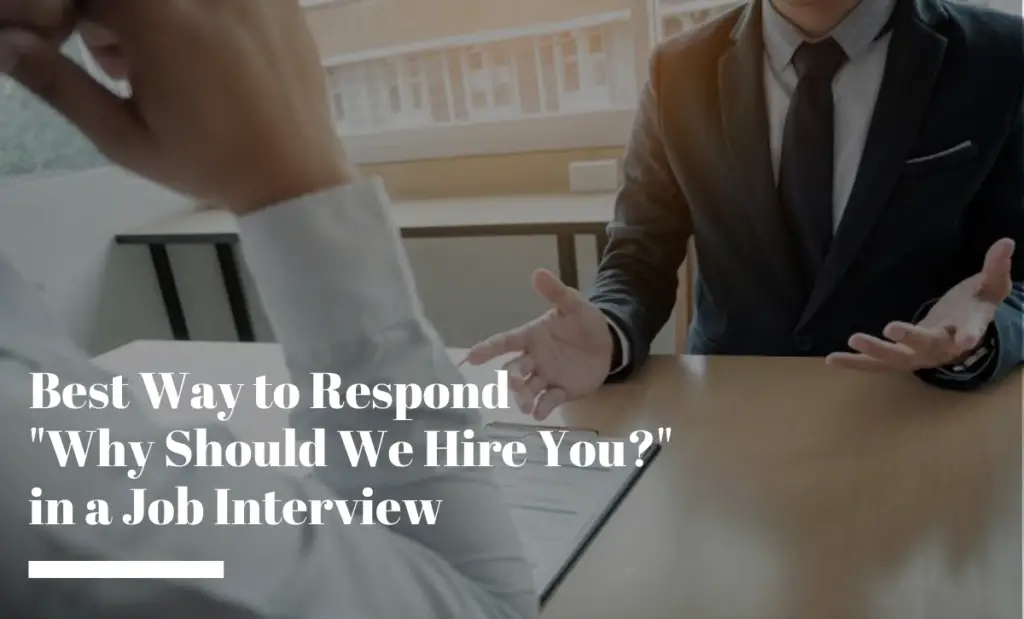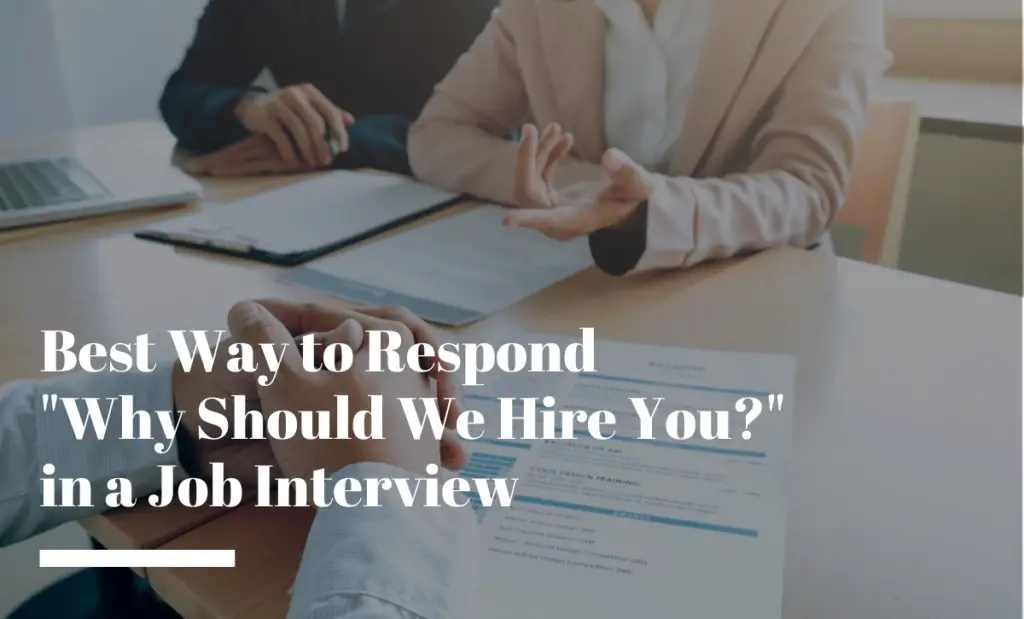So, the interviewer at your last job interview asked you “Why should we hire you?” and you were stumped. It would not be the first time. This question catches unsuspecting young job seekers by surprise very often. It’s one of the most challenging questions at job interviews.
Think about it. No matter how suitable you think you are for a company when the panel throws a direct challenge at you with such an antagonistically-phrased question, it could strike at the core of your insecurities.
Review
Chances are, if you haven’t prepared, you’ll stumble on this question.
After all, many of us are not raised knowing the balance between confident self-awareness and humility. There are two ways young job seekers usually respond to this question. Either they ramble off on a long list of things they are good at, that the interviewer could easily find out from the resume. Or else they downplay their strengths and qualities and almost end up suggesting they shouldn’t be hired at all!
Here’s a look at how you really should tackle this question. It is highly likely that some unimaginative interviewer in the future is going to repeat this question or any of its variations –
What do you think your flaws are?
Why do you think you’re good for this job?
What would you bring to this position?
Understand What is Being Asked
There are two things the interviewer is trying to do with a question like this. Yes, he is putting you in a spot. But for good reason.
Firstly, as mentioned earlier, the interviewer is trying to find out what your strengths and weaknesses are. As you can probably tell, this question could easily bring out your flaws. Secondly, an interview is also about testing how well you perform when you’re in a tight spot.
The best way to answer such a question is to keep calm and think on your feet. Don’t take the question personally. The interviewer only wants to hire the best person for the job. They want to make sure the person they hire won’t leave before the contract is over, and will get along with others. The market is competitive. And you have a shot at it. Take it easy and know how to respond to tough questions like these.
How to Answer the Question
Your response should be a brief summary of the top reasons you think you should be hired. This is your chance to sell your skills and convince the hiring manager that you should get the job. It will be easy if you are passionate about the things you do and know exactly why you want to join the company.
But not everyone knows. Some people need to do a little soul-searching and think back to instances where they learned certain skills or proved themselves in ways that will fit in with the company culture. Definitely don’t make it a laundry list of ten things that recommend you. Instead, pick three or four reasons, and provide some context.
To prepare for your answer, take a close look at the job description. Read between the lines. What qualities are the employers really looking for? Which of these do you think you can demonstrate through anecdotes from your life?

Emphasize Your Strengths
There are some potential verticals that you could look at for your answer. If you have industry experience, then definitely mention it. You could narrow it down to very specific duties and tasks that you think will fit in with and benefit the organization.
Think about these questions:
What makes me different from the typical candidate?
You could talk about soft skills or technical skills that you’re bringing to the table. Even if this is your first job interview, you can talk about occasions from school or college where you learned or applied a certain skill.
But make sure your answer is tailored to the top requirements of the job. Ask yourself what the most important qualifications are and write things down.
You could also talk about any elements of your education or any awards and accomplishments that set you apart from the rest. But you should frame your story in such a way that it’s clear how your key accomplishments led to a certain result.
You might say, everyone at the job interview is a programmer. You may worry about the competition. But in the end, if you can show a set of special skills that other programmers don’t have, you’re good to go.
Structure your Story
Don’t write a script that you memorize when you put a structure on your story. Write down bullet points and little notes for your reference. You don’t want to spend too long answering. It is skill knowing when to stop, and you’ll need it here. Your response should be answered in one to two minutes.
Practise Timing and the Right Attitude
When you’re practising this answer, time yourself. Make sure to smile a little – not too much – to show your enthusiasm and confidence. Even pretending confidence can help you convince people that you’re right for the job. It helps to have someone evaluate your practise sessions.
You don’t have to have the experience to respond with an excellent answer. If you can prove that you’re driven and enthusiastic, it can give you an edge over someone who is more qualified but is less confidence.

Examples
Let’s take a look at an example of a good answer. If an interviewee says “You shouldn’t hire me if there are a lot of constraints placed on workers by the management. I work better when I’m given some freedom to choose how to go about completing a certain task.”
Such an answer will be an excellent fit for a company with a work culture that supports independence. It shows a certain kind of confidence that hiring managers love.
If the situation demands it, you can also say that a team leader position is not for you because you’re more of a participant in meetings etc. This will show that you are thinking about the question and the job seriously.
Take these tips to heart and prepare for your interview. Good luck!
via Scholarship Positions 2020 2021 https://ift.tt/2ZeVUIH
No comments:
Post a Comment